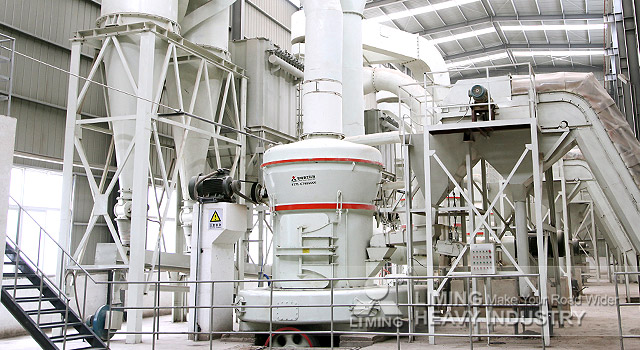Kaolin, also known as china clay, is a naturally occurring soft clay mineral that is widely used in various industrial applications. One of the key processes involved in the utilization of kaolin is grinding, which helps in refining the particle size and enhancing its properties for different end uses. Grinding kaolin to achieve the desired particle size and other characteristics often involves the use of specialized equipment, such as a mineral grinding roller mill.
Kaolin Mineral and its Properties:
Kaolin, also known as china clay, is a soft, white, and highly versatile clay mineral composed primarily of kaolinite. It is abundant in nature and is typically found in the form of deposits that can be mined and processed for various applications. Kaolin is prized for its unique physical and chemical properties, such as its fine particle size, whiteness, plasticity, and low abrasiveness. These properties make it an ideal material for a wide range of industries.

The Importance of Grinding Kaolin:
Raw kaolin often contains impurities and coarse particles that need to be reduced in size to enhance its utility in various applications. Grinding is a fundamental process used to transform the raw, naturally occurring kaolin into a finely divided powder or slurry. This finely ground kaolin can then be used in the manufacturing of products such as ceramics, paper, paints, and more.
The Role of Roller Mills in Kaolin Grinding:
Roller mills are a commonly used method for grinding kaolin. A roller mill is a machine that utilizes cylindrical rollers to crush and grind materials. In the case of kaolin, the raw material is typically fed into the roller mill, and the rollers crush and grind the kaolin into a fine powder. The key advantages of using roller mills for kaolin grinding are:
Particle Size Reduction: The primary objective of using a roller mill for kaolin grinding is to achieve the desired particle size distribution. By controlling the gap between the rollers and adjusting the roller speed, the mill can produce kaolin particles of the required fineness, ensuring uniformity in the final product.
Consistency and Quality: Roller mills are known for their ability to deliver consistent and high-quality products. By precisely controlling the grinding parameters, manufacturers can produce kaolin with consistent properties, ensuring that it meets the requirements of various applications in industries such as paper, ceramics, and plastics.
Energy Efficiency: Roller mills are known for their energy-efficient operation, which is crucial for reducing operational costs and environmental impact. The design of the roller mill allows for the effective use of energy, minimizing waste and maximizing the production output.
Customization and Versatility: Manufacturers can customize roller mills to accommodate specific processing requirements for different types of kaolin. This flexibility allows for the production of various grades of kaolin, catering to the diverse needs of different industries.
Automation and Control Systems: Modern roller mills often come equipped with advanced automation and control systems, enabling precise monitoring and adjustment of the grinding process. These features contribute to improved efficiency, reduced downtime, and better overall product quality.
Maintenance and Durability: Roller mills are designed for durability and require minimal maintenance when operated under recommended conditions. Regular maintenance ensures the longevity of the equipment and helps sustain consistent production output over time.
